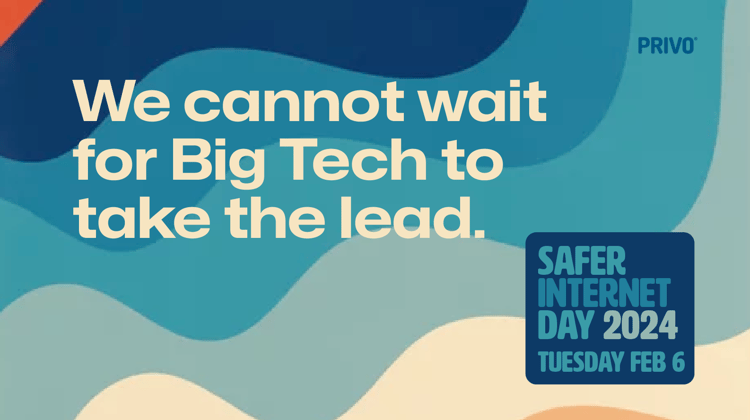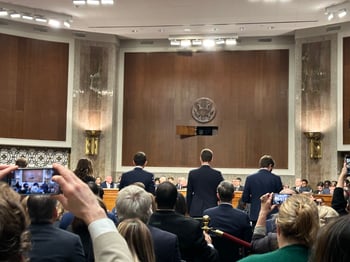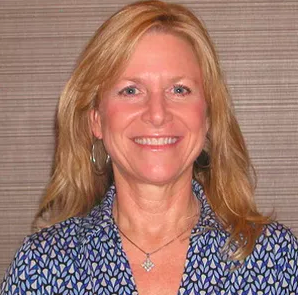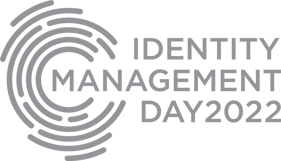
Today is Safer Internet Day – we cannot wait for Big Tech to take the lead
The Broadway play “Hamilton,” by Lin Manuel Miranda, really captures the feeling of being in a Senate hearing on kids online protection.
“I wanna be in the room where it happens. I wanna build something that is going to outlive me… No one really knows how the game is played. Nobody really knows how the parties get to ‘yes!’”
 Last week’s Senate Judiciary Committee meeting in Washington, at which Meta CEO Mark Zuckerberg apologized to parents after Sen. Lindsey Graham (R-S.C.) told him, “You have blood on your hands at Facebook,” proved once again that social media is still the Wild West. I was in the sixth row right behind the parents of teens who were cyberbullied, sex trafficked or had killed themselves after too much social pressure. It was a heartbreaking testimony.
Last week’s Senate Judiciary Committee meeting in Washington, at which Meta CEO Mark Zuckerberg apologized to parents after Sen. Lindsey Graham (R-S.C.) told him, “You have blood on your hands at Facebook,” proved once again that social media is still the Wild West. I was in the sixth row right behind the parents of teens who were cyberbullied, sex trafficked or had killed themselves after too much social pressure. It was a heartbreaking testimony.
Because gaming and social platforms cannot legally be held liable for harms caused on their platforms, including cyberbullying, inducement to self-harm, or even sex trafficking and drug sales, it’s up to parents and tools like PRIVO’s Smart Age Gate and new protection registry to safeguard pre-teens from online danger.
“If you are looking for these guys to solve the problem, we are all going to die waiting,” said a frustrated Sen. Richard Durbin (D-Ill.), chairman of the judiciary committee. “While you cannot be held civilly liable now, you can be liable for storing children’s content. He told Snapchat CEO Evan Spiegel, “Your site is used for sexting. It’s the pedophile’s ‘go-to’ medium. SNAP is the perfect tool for sexual predators.”
Sen. Durbin explained that Section 230 of the Communications Decency Act provides blanket immunity for the social media platform purveyors: “The CDA Section 230 gives you license and a free pass,” said Durbin.
I wondered, “is this a starting point for real change?” You cannot say you deserve immunity when tech companies are building AI and algorithms now that are shaping a child’s next move.
That is not what Section 230 of the Communications Decency Act was designed for—to give the tech companies and platforms reign. We need to carve-out a portion of the CDA in section 230 to create those civil penalties.
I was “in the room where it happened” and there was a great deal of hand-wringing by the tech CEOs. It is a different feeling to sit with the parents and loved ones of those hurt by online child exploitation. It made me feel more empowered than ever to bring PRIVO’s protection registry and age aware™ solutions to the marketplace.
We need to have zero parents standing up with pictures of their trafficked or killed loved ones. It’s time to stop these serious online harms.
Senator Durbin was blunt last week: “I have come to conclude that you have no interest in protecting these kids. You are given liability protection no matter what. Your product has a dark side. Perhaps we should repeal Section 230 of the CDA?”
“The dark side is too great to live with,” agreed Sen. Graham. “It’s all talk here,” he said of the Senate hearing, “Every American has been wronged by social media. We must have recourse and we must help these families.”
Hamilton (and Madison and Washington) founders of the United States would be shocked to see that social media and technology has taken our First Amendment freedoms and provided free license to tech communities to exploit children, use them as commodities and to make huge profits at their expense.


 Blog
Blog





 Facebook
Facebook Linkedin
Linkedin Blog
Blog

 Twitter
Twitter

